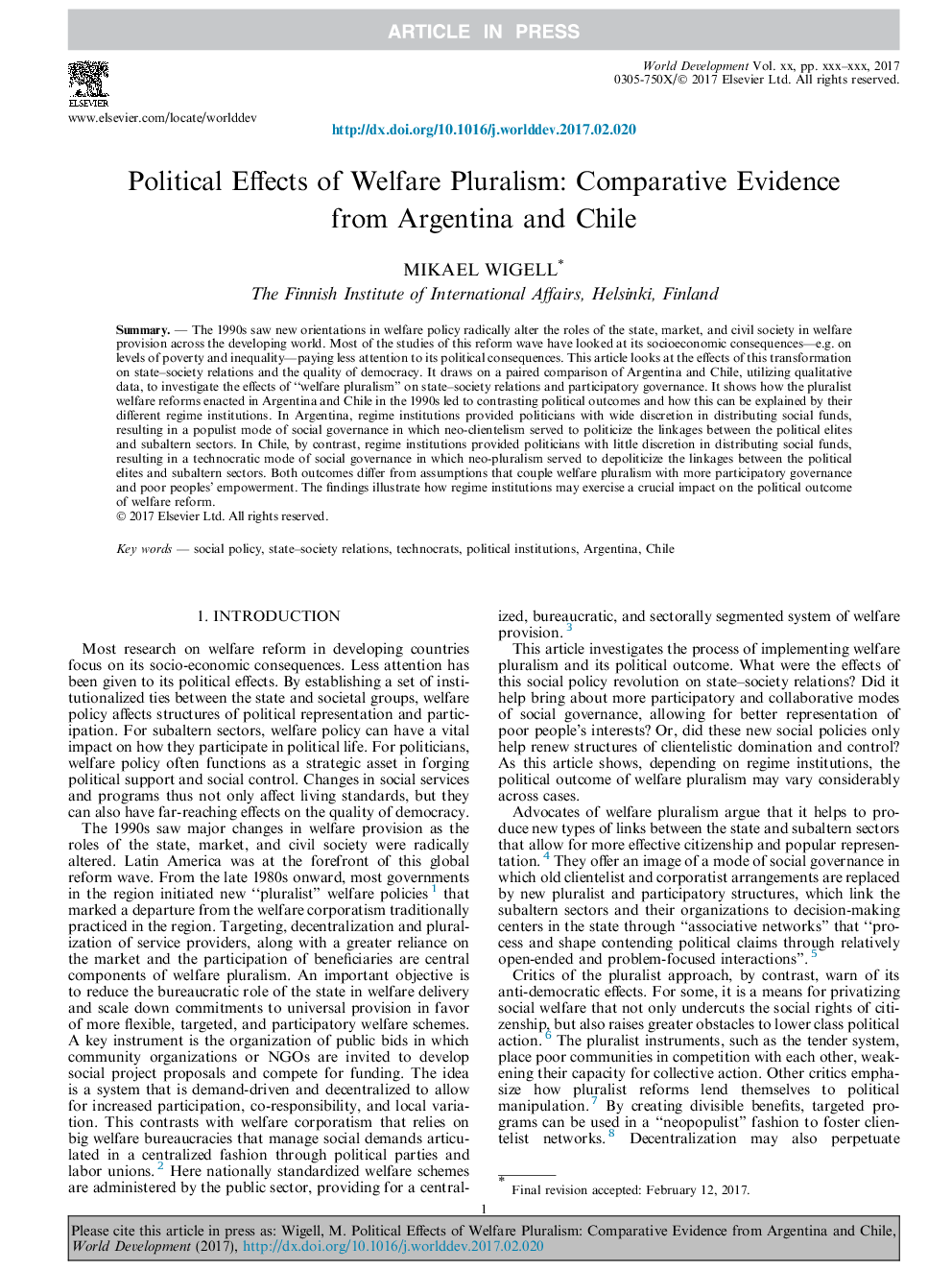ترجمه فارسی عنوان مقاله
تأثیرات سیاسی تکثرگرایی رفاه: شواهد تطبیقی از آرژانتین و شیلی
عنوان انگلیسی
Political Effects of Welfare Pluralism: Comparative Evidence from Argentina and Chile
| کد مقاله | سال انتشار | تعداد صفحات مقاله انگلیسی |
|---|---|---|
| 143278 | 2017 | 16 صفحه PDF |
منبع

Publisher : Elsevier - Science Direct (الزویر - ساینس دایرکت)
Journal : World Development, Volume 95, July 2017, Pages 27-42
ترجمه کلمات کلیدی
سیاست اجتماعی، دولت روابط اجتماعی، تکنوکرات ها، نهادهای سیاسی، آرژانتین، شیلی،
کلمات کلیدی انگلیسی
social policy; stateâsociety relations; technocrats; political institutions; Argentina; Chile;

